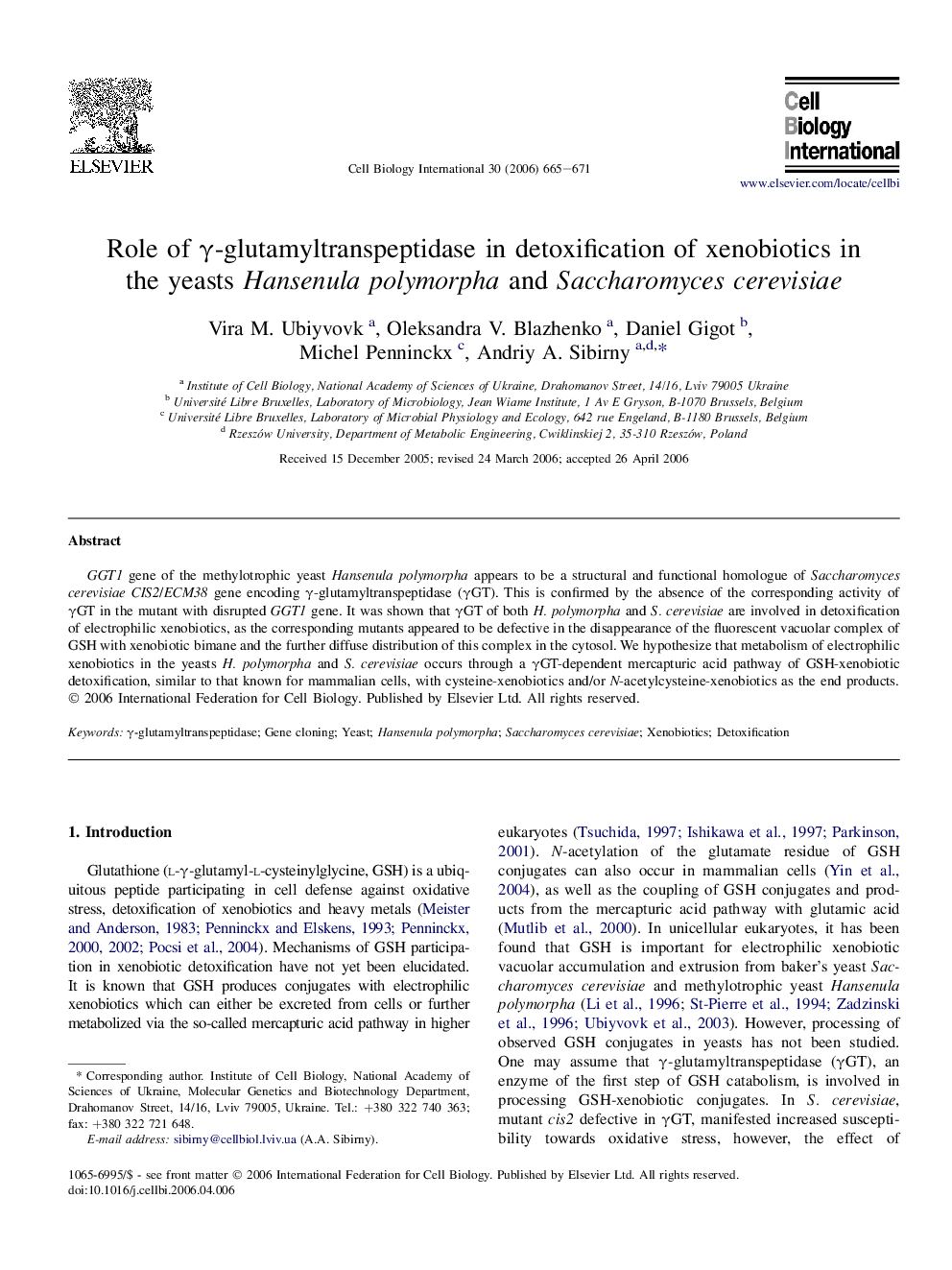| Article ID | Journal | Published Year | Pages | File Type |
|---|---|---|---|---|
| 2067892 | Cell Biology International | 2006 | 7 Pages |
Abstract
GGT1 gene of the methylotrophic yeast Hansenula polymorpha appears to be a structural and functional homologue of Saccharomyces cerevisiae CIS2/ECM38 gene encoding γ-glutamyltranspeptidase (γGT). This is confirmed by the absence of the corresponding activity of γGT in the mutant with disrupted GGT1 gene. It was shown that γGT of both H. polymorpha and S. cerevisiae are involved in detoxification of electrophilic xenobiotics, as the corresponding mutants appeared to be defective in the disappearance of the fluorescent vacuolar complex of GSH with xenobiotic bimane and the further diffuse distribution of this complex in the cytosol. We hypothesize that metabolism of electrophilic xenobiotics in the yeasts H. polymorpha and S. cerevisiae occurs through a γGT-dependent mercapturic acid pathway of GSH-xenobiotic detoxification, similar to that known for mammalian cells, with cysteine-xenobiotics and/or N-acetylcysteine-xenobiotics as the end products.
Keywords
Related Topics
Life Sciences
Biochemistry, Genetics and Molecular Biology
Biophysics
Authors
Vira M. Ubiyvovk, Oleksandra V. Blazhenko, Daniel Gigot, Michel Penninckx, Andriy A. Sibirny,
